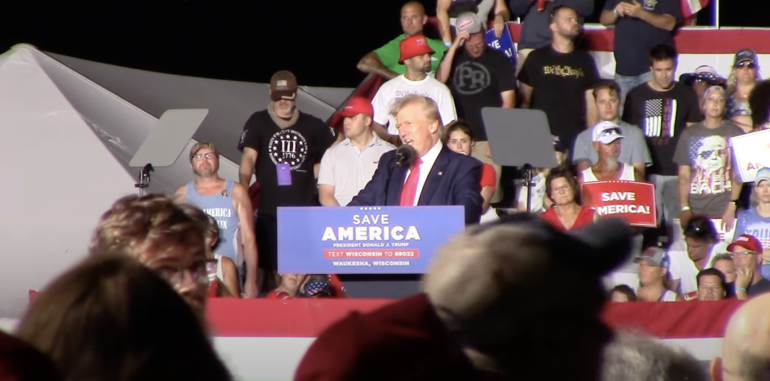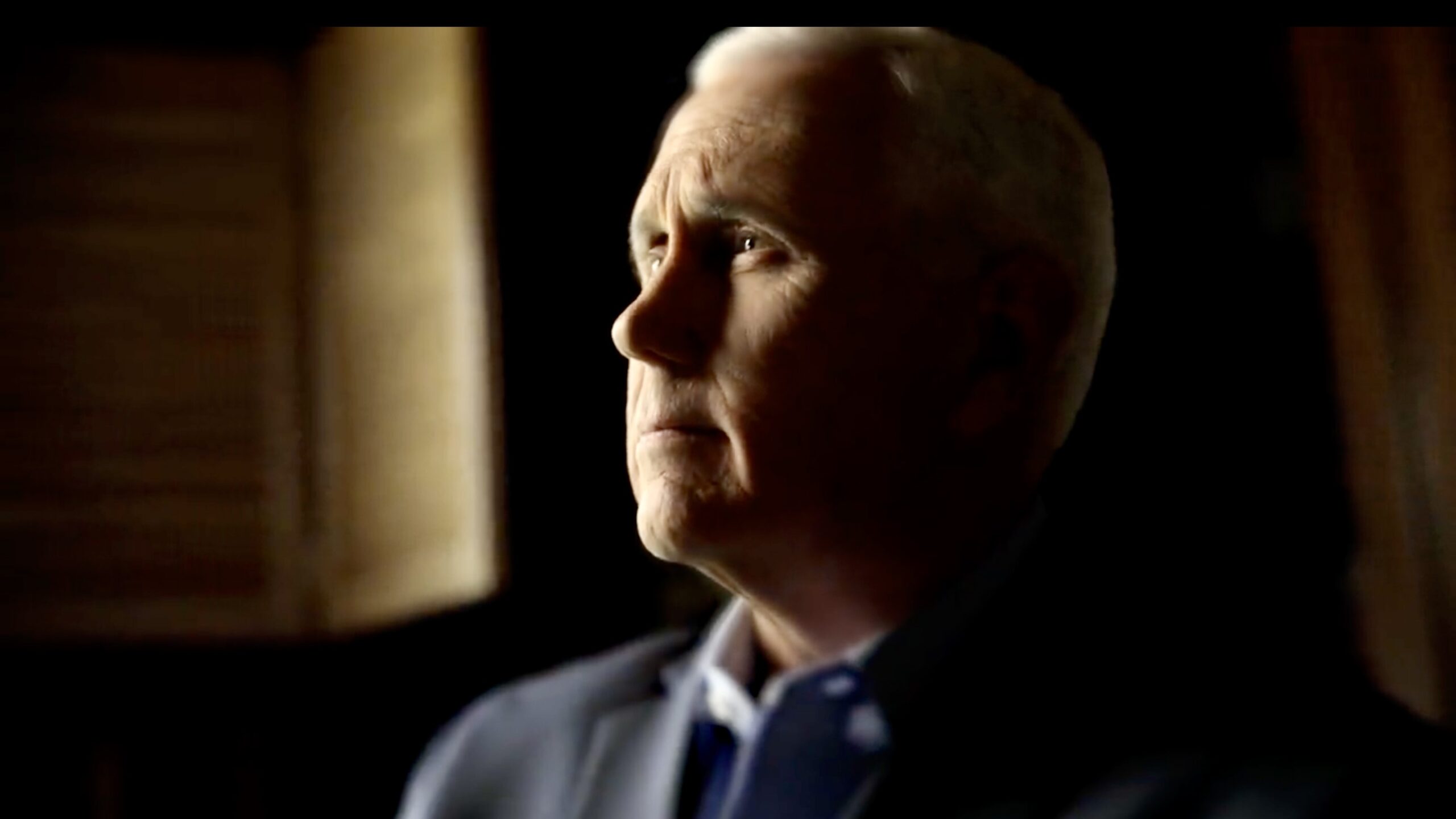Former U.S. vice president Mike Pence announced his bid for president Wednesday, marking the start of a campaign against former president Donald Trump for the Republican nomination.
“Today our party and our country need a leader who will appeal, as Lincoln said, to the better angels of our nature,” Pence said in his campaign launch video in a thinly veiled critique of his former boss.
“It would be easy to stay on the sidelines, but that’s not how I was raised,” he said.
Pence refused to overturn the results of the 2020 presidential election during the joint session of congress on Jan. 6, 2021. Trump, who had lost to Joe Biden, had pressured him to do so despite the vice president’s role in counting the electoral college votes being solely ministerial.
Trump encouraged his supporters to march to the U.S. Capitol and blamed Pence, saying, he “didn’t have the courage to do what should have been done to protect our country and our constitution.” His supporters brought a gallows to the Capitol grounds and chanted “hang Mike Pence.”
Pence said in March that Trump’s actions at the time “endangered my family and everyone at the capitol that day,” in his sharpest rebuke yet of Trump.
Despite this, Pence in 2022 campaigned in the U.S. mid-term elections for election-denying candidates such as Blake Masters in Arizona and Don Buldoc in New Hampshire, and he also refused to testify at the Jan. 6 congressional hearings.
He did, however, recently comply with a grand jury subpoena from special counsel Jack Smith’s investigation into the Jan. 6 Capitol riot.
At his campaign launch speech on Wednesday in Ankeny, Iowa, he said he “was proud to stand by president Donald Trump every single day when he made America great again.”
But his tone changed when speaking about the events of Jan. 6, 2021.
“President Trump demanded that I choose between him and the constitution,” he said in his speech
“I believe that anyone who puts themselves over the constitution should never be president of the United States. And anyone who asked someone else to put them over the constitution should never be president of the United States again,” Pence said.
Marjorie Hershey, a professor emeritus of political science at Indiana University, said that Pence will not find much support in refuting Trump’s insistence that the 2020 election was stolen.
“He will probably find in the early primaries that most Republicans don’t think it’s a big lie, and that as a consequence, he will not find it to his advantage to keep attacking Trump.”
She said Pence’s entry into the Republican primary will “hardly at all” change the race.
“His primary appeal among Republicans is to very religious and particularly evangelical Christians,” she said.
“That segment of the Republican Party has basically been dominated by former president Trump. So, his greatest appeal is to a sector of the party that is essentially already spoken for,” said Hershey who researches political campaigns, elections and media coverage of politics.
FiveThirtyEight’s Republican primary aggregate poll tracker currently puts Pence at 5.4 per cent. This is nearly 50 points behind Trump, at 53.7 per cent.
In second place is Florida governor Ron DeSantis, widely seen as Trump’s main rival, but still trailing over 30 points behind at 21.3 per cent.
As of Wednesday, nine candidates had joined the Republican primary, including Nikki Haley the former UN ambassador in the Trump administration, and South Carolina senator Tim Scott.
Former New Jersey governor, Chris Christie entered the race Tuesday and North Dakota governor Doug Burgum also announced Wednesday.
Hershey said that the candidates are not working together in the nomination process.

Former president Donald Trump speaks at a rally in Waukesha, Wisconsin, Aug. 5, 20222 Photo credit: James Westman
“They’re acting as individuals, and so as individuals, each of those candidate feels that he or she has at least a shot at becoming the main alternative to Trump,” she said.
The number of candidates does not a make a huge difference if Trump has at least two opponents, Hershey said.
Most Republican primaries and caucuses use winner-take-all rules that mean whoever gets the most votes gets all the delegates from that state, even if they are short of a majority.
“As soon as you’ve got a third candidate, you have the possibility that a candidate can get less than 50 per cent of the vote, but still more than the other candidates.”
Hershey does not see a viable path to the nomination for any contender but the former president.
“I don’t think that any other candidate is very likely at this point in the Republican nomination race to be nominated other than Donald Trump,” she said.
As for Pence getting his old job back, Hershey was not optimistic, describing the odds of Pence becoming Trump’s vice president pick again as “zero.”
“Trump is all about loyalty and as far as he’s concerned, Pence has been disloyal.”
The Republican primary season begins with the Iowa caucuses in early 2024. The next presidential election will be held on Nov. 5, 2024.

